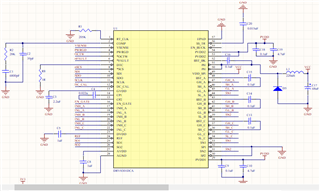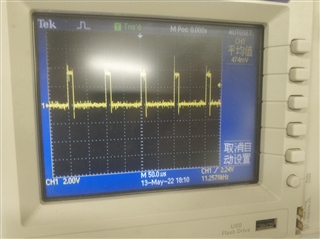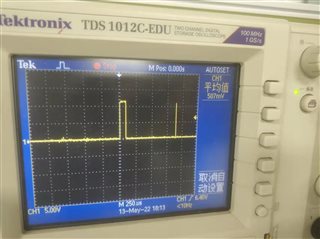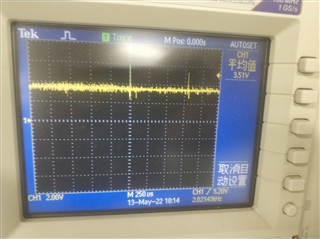Hi team,
Here's an issue from the customer may need your help:
When output PWM, after connecting to the motor the output side shows the following waveform:

The customer would like to know what's the reason for that. Could you help check this case? Thanks.
Best Regards,
Cherry






